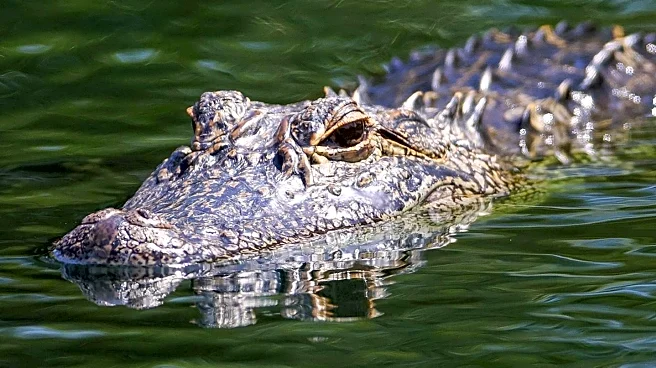What's Happening?
Walmart has banned an emotional support alligator named Jinseioshi from its stores after a customer complaint. The alligator, owned by Wesley Silva, has been visiting Walmart locations in the Pittsburgh area for years. Silva, who is a pastor, certified Jinseioshi as an emotional support animal in 2022. The ban was enacted after a woman shared photos of the alligator at a store, leading to concerns from other customers. Walmart stated that only service animals recognized by the Americans with Disabilities Act (ADA) are allowed in their stores. According to the ADA, service animals are defined as dogs trained to perform tasks for people with disabilities, with miniature horses also included under certain conditions.
Why It's Important?
The ban highlights the ongoing debate over the classification and rights of emotional support animals versus service animals. Emotional support animals, like Jinseioshi, are not recognized as service animals under the ADA, which can lead to restrictions in public spaces. This decision by Walmart underscores the importance of adhering to ADA guidelines, which aim to protect the rights of individuals with disabilities who rely on trained service animals. The situation also raises questions about the responsibilities of pet owners and the potential risks of bringing non-traditional animals into public settings.
What's Next?
Silva plans to adjust his routine by leaving Jinseioshi in the car or opting for grocery pickup services. The incident may prompt further discussions on the policies surrounding emotional support animals in public spaces, potentially influencing other businesses to review their own guidelines. Additionally, Silva's experience could lead to increased awareness and advocacy for clearer distinctions between emotional support and service animals.
Beyond the Headlines
The case of Jinseioshi brings attention to the ethical considerations of keeping exotic animals as pets. Silva argues that Jinseioshi lacks the instincts of a wild alligator due to being captive-bred, raising questions about the welfare and natural behavior of such animals. This situation may spark broader discussions on the responsibilities of pet ownership and the impact of human interaction on wildlife.









